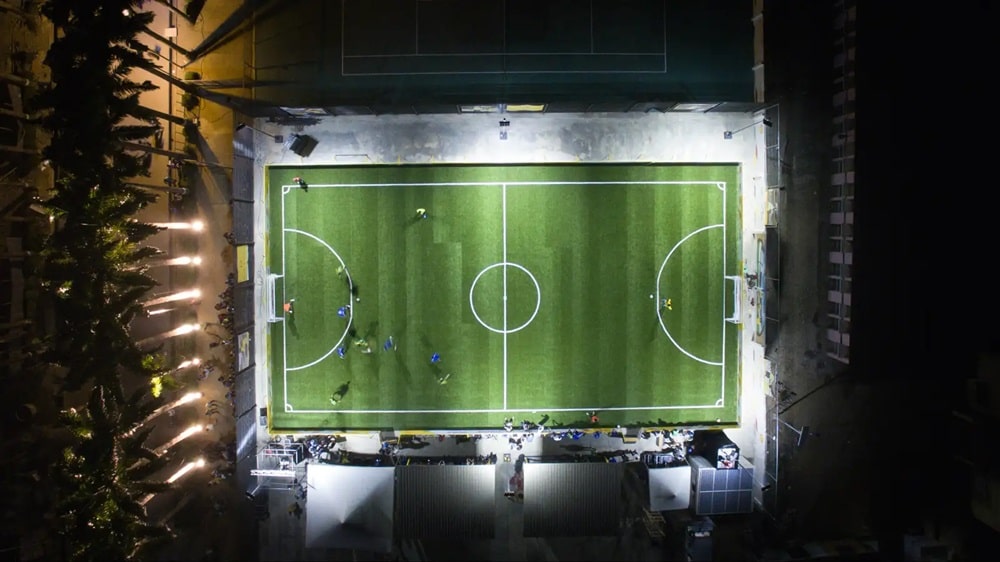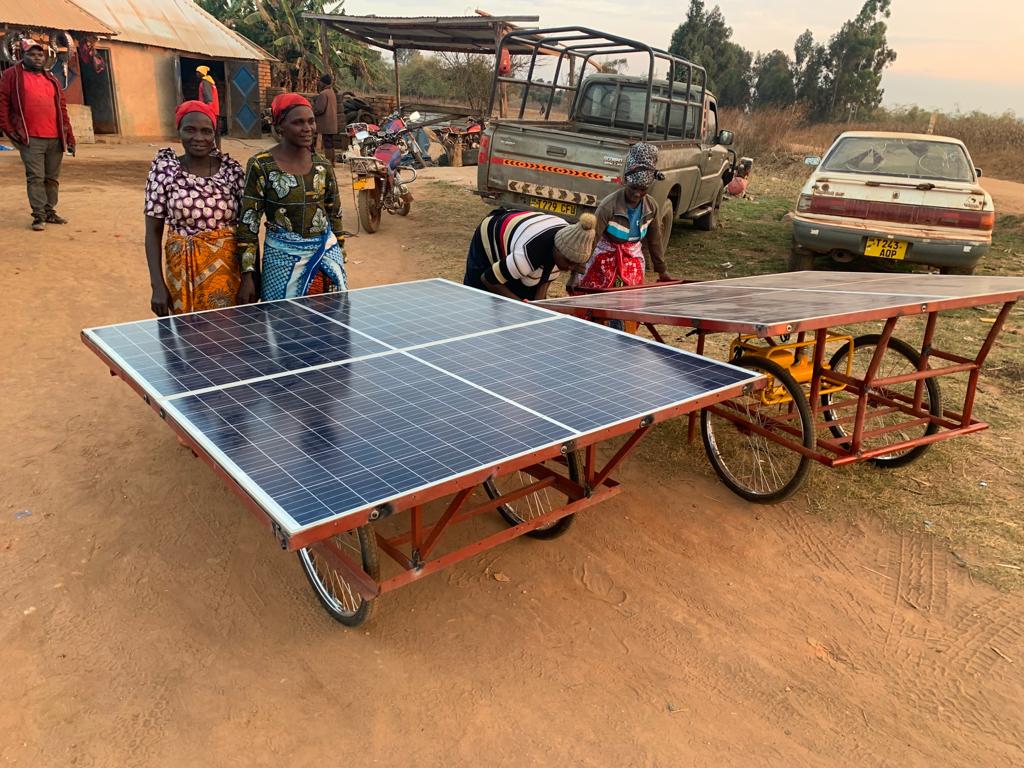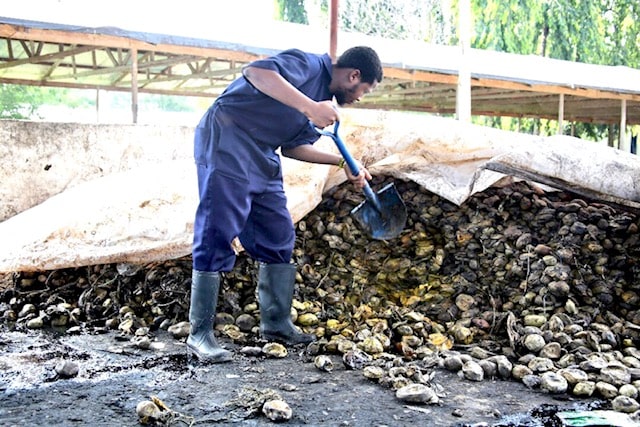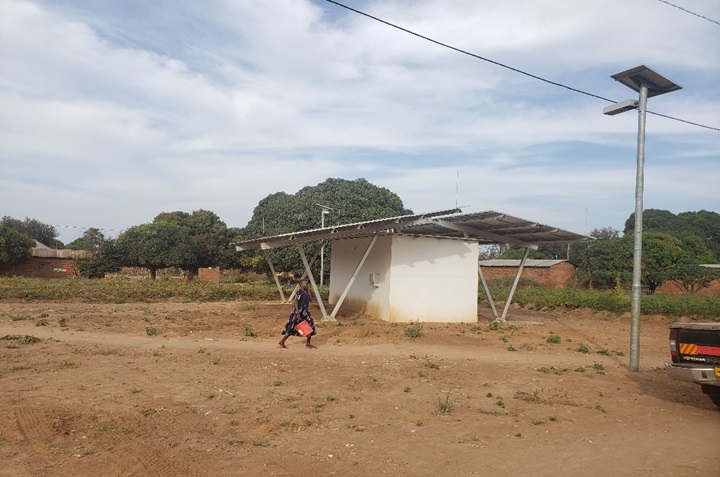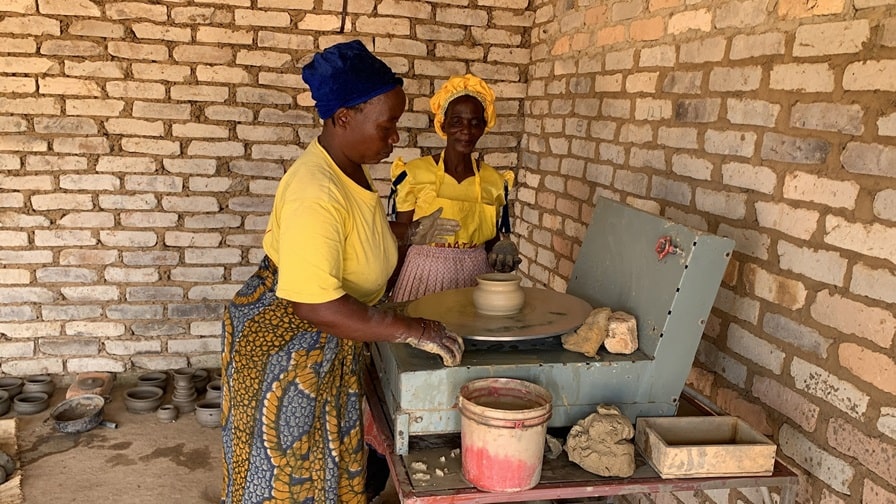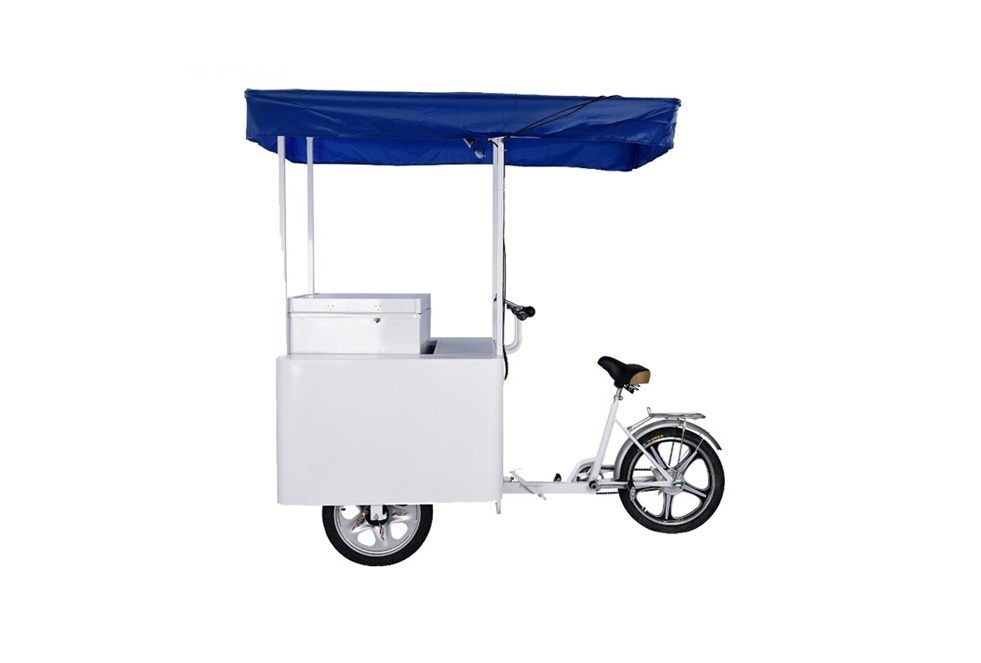- It enables them to build houses and send children to school.
- Solarpower brightens their prospects.
Iringa. Zena Nyongole (40) didn’t think that her passion in pottery would someday pay off and enable her to live the life she always dreamed of during childhood.
A wife and a mother of three children, Zena inherited the art of molding and decorating pots from her grandmother who used to create pots for the family use and she still remembers how she advanced it into a life saving business.
“I started creating different things than what my grandmother used to make. I designed warmers for chickens and decorative flower pots, and now I sell them,” says Zena, a resident of Rungemba village in Iringa region, southern Tanzania.
Rungemba is situated along the Tanzania-Zambia highway adorned with various clay-made products neatly arranged on the roadside for sale.
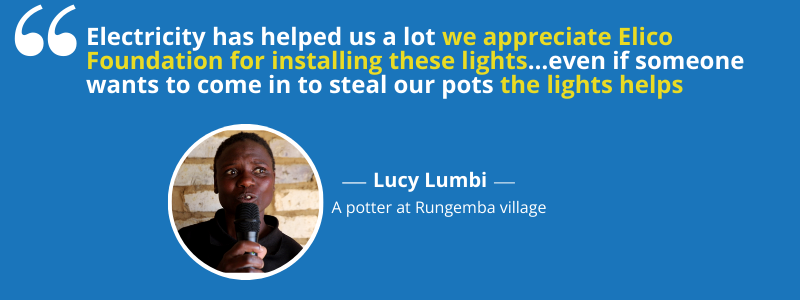
While pottery may seem like a niche art form done by few, the Trend Economy website indicates that Tanzania is one of the countries both importing and exporting clay-based products to other nations.
The exports of clay products from Tanzania have not been stable over the past decade.
For instance, in 2022, the value of clay product exports plummeted to Sh4.2 million (equivalent to $1,703.59) from Sh35,420,800 ( $14,092.95) recorded in 2021.
During the same year, Tanzania imported clay products from foreign countries worth Sh1.04 billion, a significant increase from Sh746.8 million in 2021.
Despite the fluctuating value of clay products in the country, a global report on clay product sales indicates an increase in value by the year 2030 caused by various factors.
“The growth is expected to be stimulated by increased investment in the construction and renovation of the hotels & restaurants industry,” reads part of the report.
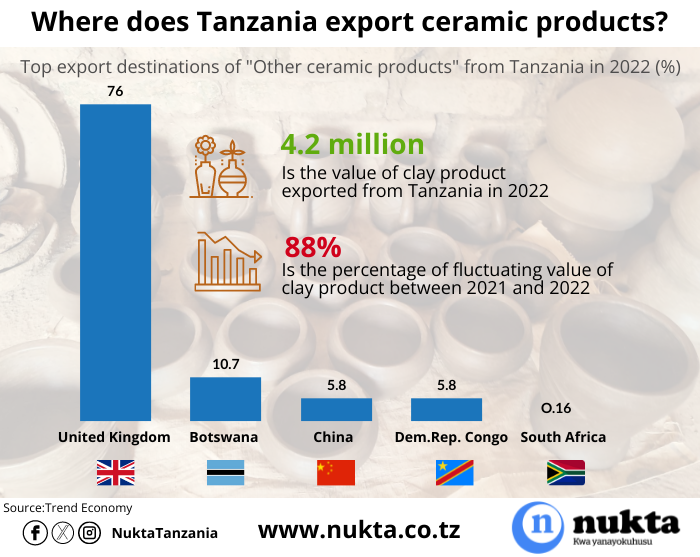
The hidden value of pottery
Realizing the hidden value of pottery, Zena decided to form a group called ‘Juhudi na Maarifa’ with other 10 women in her community whom she can join strength with in clay pots production and bump up their income.
Through this group, they began to see the fruits of pottery work, enabling them to save money, lend to each other, and support one another in times of need.
The group produces various clay products including pots, water containers, cooking stoves, and decorative vessels, small and large flower pots, bee hives, as well as statues of people and animals used for home decoration.
Their creation of various products in Rungemba village, positioned along the corridor from Iringa to Njombe road, has turned the area into a captivating beauty, making it a compelling tourist attraction.
The products cost between Sh1,000 and Sh15,000 depending on the size and beauty of the pots.
A tough but rewarding job
The process of making pots starts with collecting clay from a location about 3 kilometers away. Due to the distance, they have to hire large trucks or small trucks for Sh80,000 or tricycle for cargo service for Sh35,000.
Once the clay is brought home, young assistants help knead and pound it until smooth, then mix it with sand before handcrafting various items, a process which takes up to three days.
“It will stay inside for three days, on the fourth, it will be taken out in the sun, and on the fifth day, it will be fired in the kiln,” Zena explains their traditional pot making process.
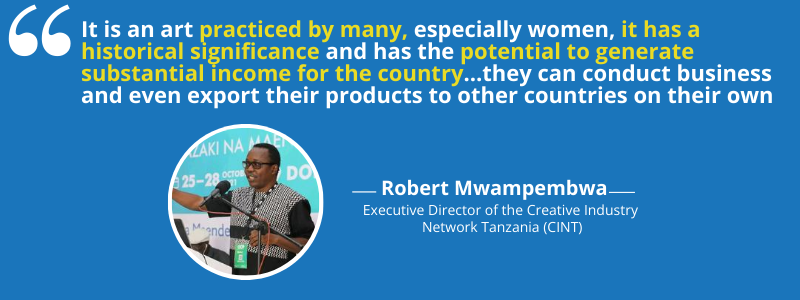
Solar power brightens their prospects
In contrast to the past when they had to close their businesses due to insufficient light, now with solar-powered lights the group can operate their business 24 hours a day, leading to increased profits.
“We used to finish at around 7 to 8Pm, but now the working hours have increased. There is plenty of light, so when customers see the pots, they honk, and we come out to sell them,” Zena said.
With a profit of Sh50,000 in a month, Zena has achieved to buy land, build a three-bedroom house, buy a motorcycle for business, and educate her children at various levels.
Besides Zena, other women in the group benefit from loans that empower them to acquire capital for running pottery businesses,which help them to sustain their family needs and educate their children.
Solar-power has more than increased productivity to this women group.
Lucy Lumbi, another potter in the village, said the installed lights have enhanced the security of their products, especially at night.
“Electricity has helped us a lot, we appreciate the Elico Foundation for installing these lights…even if someone wants to come in to steal our pots, the lights help,” Lucy said.
However, the handcrafted pots lack the quality compared to machine-made ones which currently they are not producing due to lack of resources and skills.They are heavy, often have black marks from wood-fired kilns, which sometimes deter customers, especially passersby.
Despite facing challenges such as marketing and limited knowledge of using modern machines for pottery, Zena’s family, including her husband and children, supports her in her work.
” I saw her work, frankly it’s a good business…after spending time watching her mold clays I found myself attracted to it and started to learn how to play with clay little by little,” Says Mohamed Malongo Zena’s husband who is a farmer.
After years of learning now Malongo can mold charcoal stoves pots which he sells from Sh1000 to 5000 depending on the size.

